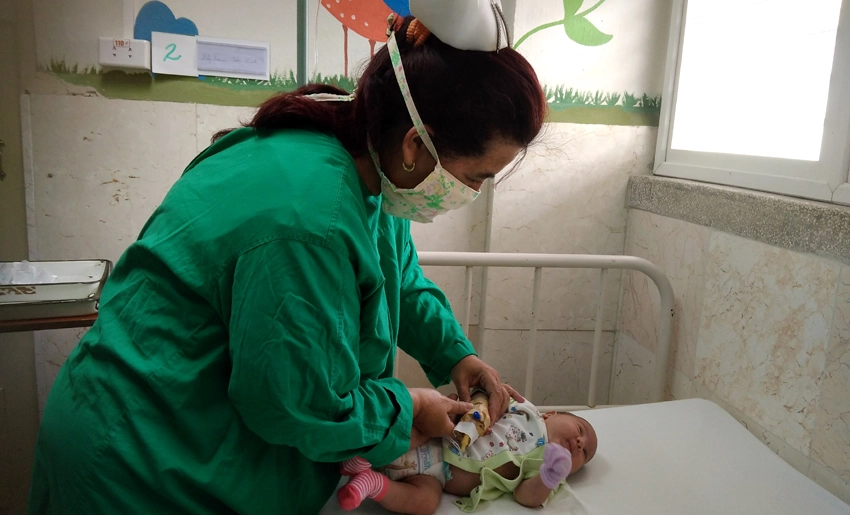As part of the activities programmed for the 29th Cuban Congress of Pediatrics – scheduled for September 23 to 27 this year at Havana’s Convention Palace – is the First Nursing Symposium, which has organized a National Workshop on specialized nursing care for injured pediatric patients, to be held in Holguin on June 28.
According to the National President of the Pediatrics Section of the Cuban Nursing Society, Eiliana Cruz Gonzalez, this province was selected for its relevant results at the country level in relation to the care of pediatric patients, either through the development of protocols or nursing action guides, in addition to the achievements in the survival of complex conditions in pediatric ages and in the care of neonatal patients.
The also PhD in Sciences and First Degree Specialist in Maternal and Child Nursing highlighted the participation in scientific events such as congresses, annual health awards, awards from the Cuban Academy of Sciences and awards from the National Association of Innovators and Rationalizers (ANIR).
“The nursing staff has been involved in all the processes, it boosts the development of competencies both from assistance, teaching, administration and research,” he pointed out.
This action will be developed by professors with experience in the care of this type of patients and in its conception has a theoretical and a practical part, and will conclude with an evaluation to determine the level of knowledge acquired by this personnel during the development of the Workshop, added the also full professor of the University of Medical Sciences of Holguin.
Addressing specialized nursing care for injured pediatric patients is of great importance, especially in view of the approaching summer season, when there is a statistical increase in the number of pediatric patients injured by car accidents, trauma or falls.
Hence the need to train these personnel in the necessary skills and to offer the possibility of establishing a process of interrelation between secondary and primary care, in terms of standardization of care and assistance to this type of patients.
- The 4th edition of the Master’s Program in Natural Medicine will begin in Holguin - 16 de January de 2026
- Blood Bank Inaugurated at Holguin Military Hospital - 15 de January de 2026
- Holguin Cancer Center Plans to Incorporate Endoscopic Surgery in Urology - 14 de January de 2026

